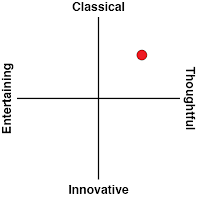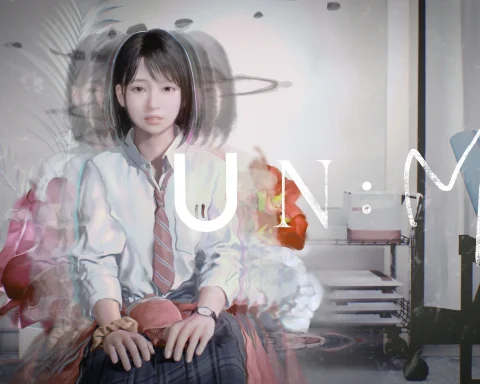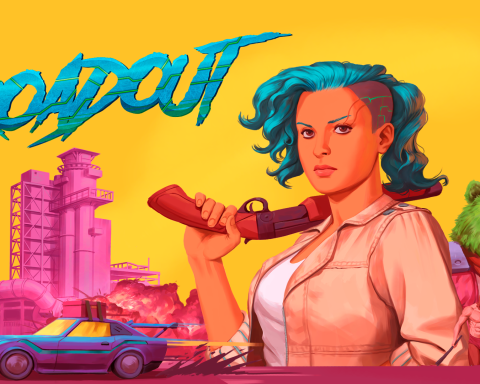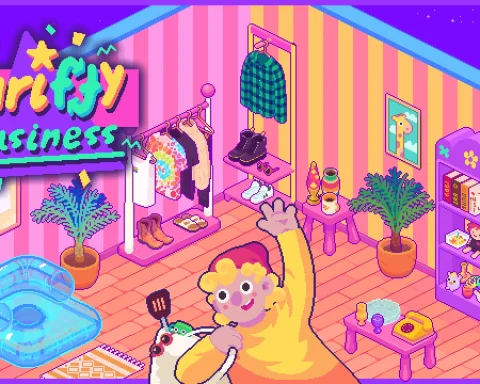Review by Matt S.
What a game. What an absolutely delightful shot of retro goodness right through the arteries and into the heart. No waiting for the stomach acid to dissolve this drug into the system, no sirree. Star Ocean: First Departure R is direct into the veins.
I had never played the original Star Ocean prior to this port of the PSP remaster. As far as I know, the original SNES Star Ocean was never released in Australia, and the PSP remaster was a UMD-only release and I – who only got into the PSP via the UMD-free PSP Go – never had the opportunity to play that version either. I am, however, a big fan of Star Ocean. I got into the series with Star Ocean 3 on PlayStation 2, fell in love with Reimi… I mean the series… with Star Ocean 4 on the PlayStation 3, and was one of the very few that genuinely enjoyed the PlayStation 4’s Integrity and Faithlessness (no, really, here’s the 4/5 review to prove it). In that context I was immediately enthralled by what was effectively a “new” Star Ocean experience for me.
On the surface each Star Ocean title plays out like a space opera, with highly advanced people from across the galaxy clashing with one another, and typically people from less advanced civilizations being caught in the cross-fire. But there’s more to it than that. One of the things I have consistently loved about this series is the theological debate that becomes a running theme through it. In each title, in some way or another, there’s some kind of challenge to the idea that the supposedly enlightened, advanced cultures are an inherent righteous good, while the less advanced, “superstitious” (i.e. religious) cultures are presented as perhaps less ignorant and unenlightened than the advanced communities might assume. It’s a similar debate that is a common thread across Star Trek, and indeed both Star Ocean and Star Trek share a similar “rule” whereby advanced civilizations are meant to leave fledgling and underdeveloped civilizations alone. Star Ocean 1 is no different, and while none of these games are preachy or take sides, it’s clear that the developers see balancing role between both science and spirituality as ultimately healthy for a community. Which is, when you think about it, a very Japanese way of looking at things.
As it was originally a SNES title, the storytelling in First Departure R is clean and to the point, but it’s also very funny, very frequently. Every town and city has at least one or two eccentric weirdos to interact with, and there are frequent lampoons of popular elements and traditions of other JRPGs scattered throughout the world. Each of the cast have a distinctive personality as well, and they all bounce off one another well – it’s possible to split the party up when exploring towns and end up having all kinds of interactions by then bumping into your buddies while they’re enjoying the downtime. Star Ocean does go some dark places, but the wit and charm that persists through the narrative helps to keep it on the light side of things.
Mechanically, the game feels its age. Combat is action-based and, coming from the SNES era as it did, can be quite button-mashy. Each character can have up to two special abilities to go with their standard attack, and of course there’s all the magic and items that are standard for the genre, but people who are used to Bandai Namco’s Tales series, or anything of Tri-Ace’s later work, will likely feel that this game’s combat system is limited. This is doubly true given how frequently random encounters occur. Dungeons and the world map are relatively small, and there’s a dash button to get you from place to place quickly, but you’ll still be fighting a battle every few steps. People who grew up with the genre won’t have an issue with this, but it would have been nice for the developers to rebalance things a little more so that newer players could enjoy it too.
In terms of presentation, however, Star Ocean is superb. Square Enix has been patchy on its remasters in recent years, but this one gets things so right. Cut scenes, for example, are clearly beyond what the SNES was capable of, but at the same time look like they come from an anime of the 90’s. The same goes for character portraits. It’s very modern, but distinctly retro, and complements, rather than clashes with the pixelated sprite work of the characters. The world itself has a 3D render, but looks like an aesthetic match to the other visual elements. It’s a lovely, blended effect, which is a nice change from 3D HD models that clash with the untouched backgrounds (Final Fantasy VII to IX remakes) or redrawn sprites that look like the work of a work experience kid (Final Fantasy IV through VI for mobile, or Dragon Quest). I haven’t played the original Star Ocean, but I wouldn’t be able to pick out what elements have been brought over from the original, and what is all-new work. That is, ultimately, what you want from a remake.
People who have played other Star Ocean titles will get a kick out of some of the names and locations being crossed over from those entries. Each Star Ocean title is distinct and self contained, and there’s no particular order that you need to play them through, but there’s a cohesiveness across key locations and names that establishes this series, infrequent as it is, as being one in which titles are tied to one another. Even if it is a simple case of name dropping time gates and the like at times.
Square Enix has been on a bender with its classic library in the later half of this year. The Mana collection came a few months ago, and there have been two SaGa titles re-released in just the last month as well. Star Ocean has always been the forgotten brother of the Square Enix catalogue, but it deserves better, and now that you’re able to play four of the five in the series on your PlayStation 4, there really is no excuse if you haven’t dipped into them already.
– Matt S.
Editor-in-Chief
Find me on Twitter: @digitallydownld









